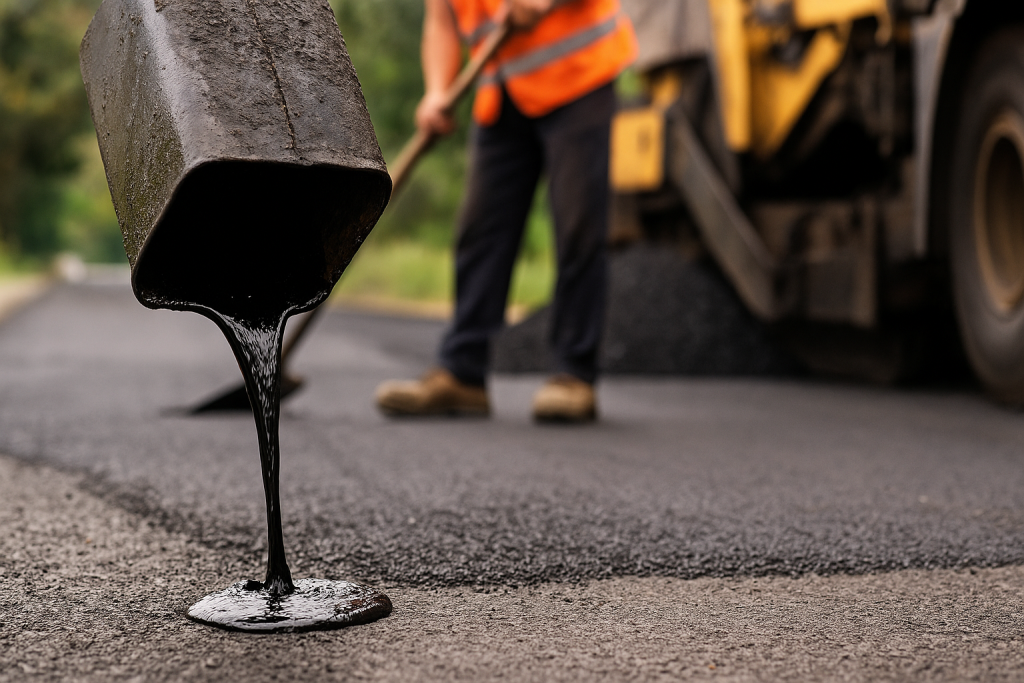Bitumen 60/70 vs 80/100: Which Grade is Best for Your Construction Project?

Choosing the right grade of bitumen is one of the most important decisions in any road construction, paving, or infrastructure project. Among the most widely used penetration grades are Bitumen 60/70 and Bitumen 80/100, each offering unique characteristics suited for specific climates, traffic conditions, and project requirements. Selecting the wrong grade can impact durability, performance, and cost-efficiency. In this article, we provide a detailed comparison of both grades to help you make the best choice for your project.
Understanding Bitumen Penetration Grades
Bitumen grades are classified based on penetration values measured in 1/10 mm units. The penetration test indicates how soft or hard the bitumen is under standard conditions.
- Bitumen 60/70: Penetration between 60 and 70 units, meaning it is harder and more viscous.
- Bitumen 80/100: Penetration between 80 and 100 units, making it softer and more flexible.
This simple classification plays a crucial role in determining resistance to temperature, load, and cracking.
Bitumen 60/70: Properties and Applications
Bitumen 60/70 is widely regarded as a high-quality, durable grade that performs exceptionally well under heavy traffic loads and hot climates.
Key Properties of 60/70
- Penetration: 60–70 (1/10 mm)
- Softening Point: Around 49–56°C
- Viscosity: Higher compared to softer grades
- Durability: Excellent under high stress and heavy vehicles
Where 60/70 is Used
- Highways and expressways with heavy traffic
- Urban roads exposed to frequent stress
- Hot and tropical regions where resistance to softening is critical
- Airport runways and industrial zones requiring maximum load-bearing capacity
Bitumen 80/100: Properties and Applications
Bitumen 80/100 is a softer and more flexible grade, ideal for colder climates and low-traffic areas.
Key Properties of 80/100
- Penetration: 80–100 (1/10 mm)
- Softening Point: Around 45–52°C
- Viscosity: Lower than 60/70, ensuring easier workability
- Flexibility: Better suited for environments prone to cracking at low temperatures
Where 80/100 is Used
- Colder regions where low-temperature flexibility is essential
- Rural or low-traffic roads
- Temporary construction projects where cost-effectiveness is prioritized
- Surface dressing and lighter paving applications
60/70 vs 80/100: Comparative Analysis
| Criteria | Bitumen 60/70 | Bitumen 80/100 |
|---|---|---|
| Hardness | Harder, more viscous | Softer, more flexible |
| Temperature Resistance | Performs better in hot climates | Performs better in colder climates |
| Traffic Load | Suitable for heavy traffic | Suitable for light to moderate traffic |
| Cracking Resistance | Resistant to rutting and deformation | Resistant to cold cracking |
| Cost | Slightly higher due to durability | More economical |
| Best Application | Highways, runways, heavy-duty pavements | Rural roads, temporary works, cold zones |
Climatic Suitability
- In hot climates, softer grades like 80/100 may bleed or deform under heavy loads, making 60/70 the preferred choice.
- In cold climates, harder grades like 60/70 can crack, so 80/100 provides better flexibility and resistance.
Traffic Considerations
The intensity of traffic should always guide your decision:
- Heavy traffic and freight corridors → Choose 60/70 for long-lasting stability.
- Low traffic or rural roads → 80/100 offers a cost-effective solution without over-specification.
Workability and Construction Efficiency
- Bitumen 80/100 is easier to mix and compact due to its softness, reducing construction time and energy consumption.
- Bitumen 60/70, although harder, ensures superior performance and reduced maintenance costs in the long run.
Longevity and Maintenance Costs
- 60/70 provides longer pavement life and requires less frequent maintenance, making it more economical for large-scale projects despite higher upfront costs.
- 80/100, while cheaper initially, may lead to higher repair costs in demanding conditions.
Which Grade Should You Choose?
Choose Bitumen 60/70 if:
- Your project is in a hot or tropical climate
- You are constructing highways, runways, or industrial pavements
- The road will experience heavy traffic and load stress
Choose Bitumen 80/100 if:
- Your project is in a cold or moderate climate
- You are building rural or low-traffic roads
- You want a cost-effective solution for flexible pavements
Expert Recommendations
We recommend Bitumen 60/70 for most urban, industrial, and heavy-duty road projects, especially in warmer climates. It ensures resilience, durability, and reduced maintenance costs.
For projects in colder regions or for light-duty applications, Bitumen 80/100 provides the necessary flexibility and affordability without compromising basic performance.
Conclusion
Both Bitumen 60/70 and Bitumen 80/100 have distinct roles in construction. The decision depends on climate, traffic load, budget, and long-term performance requirements. By aligning the right grade with your project’s needs, you can achieve optimal durability, cost-effectiveness, and safety.
When in doubt, always consult with a trusted supplier and technical expert to ensure that the selected grade matches your project specifications. The right choice of bitumen grade is the foundation of a successful and long-lasting pavement.
